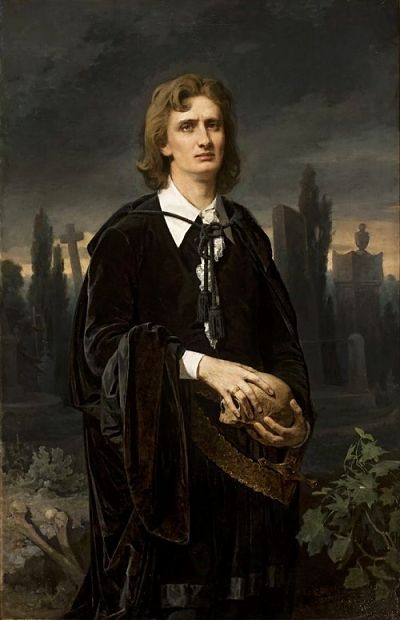
Higher education begins in learning to form and ask good questions. A good professor challenges our deepest ideas and helps us see the world in a new way. The result of this education will be an ability to act. The best questions challenge the intellect, move the heart, and motivate action.
Socrates called his students to know themselves. This did not mean endless self-introspection. One of the hardest ways to know myself is to focus on myself. The best way to learn who I am is in a community. When we question each other and seek the truth, then we see ourselves in the eyes of the people in our group. When the time comes to get up and act on what we have seen, we will be humble and careful, because we know that all our conclusions are tentative, but we will act.
Some students resist taking the time to talk, ask questions, and probe assumptions. They just want to “do something” about the problems they see. Others of us like talking and thinking so much that we never get around to acting or when we do act, we are dragged down by self-doubt. Of course, many of us have family or social situations that add to our hesitation.
As usual Shakespeare understands the balance between self-knowledge and Socratic questioning and action. His great tragedy Hamlet contains enough wisdom for a lifetime of study, but the first time I watched the play being performed (in the park!) I was struck by the first line: Who’s there?
I don’t think anyone knows who Hamlet is, because Hamlet doesn’t know who he is. Why?
Hamlet’s family is a mess.
Dad’s dead. Uncle killed Dad. Mom married Uncle.
Hamlet’s country has a rottenness he can smell.
The county is ruled by the same murdering usperers.
Hamlet was failed by his university education.
He seemed to have gone to the University of Maybe where sophistical question mongering has replaced Socratic education. He knows enough to doubt the old truths, but not enough to do anything with the modern ways.
Hamlet is so worried about getting it wrong, he ends up getting it wrong.
Most of what has harmed Hamlet wasn’t his fault: he has a dead father, murdered by his mother and his uncle, and now his uncle is his step-dad. Hamlet should be king, but isn’t . . . somehow Uncle Claudius gets the job with the Queen. This is all very bad, but not tragic. Courts are constantly playing a game of thrones. What is tragic is that Hamlet has greatness in him, but his potential never actualizes. Instead, he dies.
So what do you do if you are in Hamlet’s position?
Find some friends and trust them.
Hamlet is mourned when he is dead, but he seems incapable of telling anyone in his life the whole truth. He certainly uses and abuses Ophelia, his beloved. Hamlet needs to listen and not just monologue. The obvious corollary to this principle is that you cannot use your friends as props to solve your problems.
Don’t stick around the court.
Hard to see anything good coming of life with your regicidal Uncle and wretched Mother. Hamlet can honor his one decent parent (now dead) by getting out of Elsinore. In the same way, we all wish the family, ministry, workplace would be healthy, but if it isn’t and the rotten state of affairs is getting to you . . . get out.
Dead people are bad guides.
Hamlet has a “spiritual experience” at the start of the play. His dead Dad (maybe) tells him a story that might be true . . . and Hamlet decides to act on it even if the ghost is just a devil. Here is a rule: ghosts are bad guides. There is a reason they are doomed to wander the earth and it generally isn’t their virtue.
Most of us don’t see ghosts, but we can be tempted to poke around in spiritual funny corners when we are in trouble. Hamlet seeks out conversation with a damned spirit when a wise man runs from ghosts or rebukes them. Stay out of spiritual weirdness when in doubt.
Get a priest.
Hamlet talks about God constantly, but he never bothers to get some spiritual guidance. He acts as if part of the job of being Prince of Denmark is also to be Bishop of Denmark and determine the spiritual health of the nation. Hamlet has an underlying arrogance about his own wisdom that is part of the problem.
There is not a promise from God that if Hamlet does all the “right things” that his problems will vanish. It is a complex cosmos and Hamlet may not have a “happy ending” as an option in his life. However, he could be decent, honorable, and help those near him instead of driving them to madness, death, and frustration.
Socratic questioning is not a monologue and Hamlet loves to monologue. Socratic questioning is finding a mentor and learning . . . not finding an empty room and talking to oneself. Socratic dialogue helps us to determine how we should live, and does not push us out of life into meaningless discussion. Let’s not be Hamlet and so live.
—————————————-
William Shakespeare went to God four hundred years ago. To recollect his death, I am writing a personal reflection on a few of his plays. The Winter’s Tale started things off, followed by As You Like It. Romeo and Juliet still matter, Lady Macbeth rebukes the lust for power, and Henry V is a hero. Richard II shows us not to presume on the grace of God or rebel against authority too easily. Coriolanus reminds us that our leaders need integrity and humility. Our life can be joyful if we realize that it is, at best, A Comedy of Errors. Hamlet needs to know himself better and talks to himself less.
















